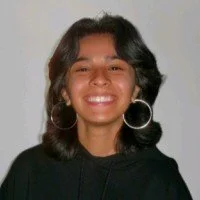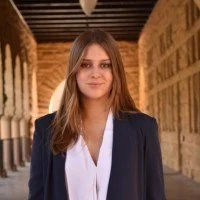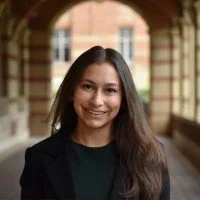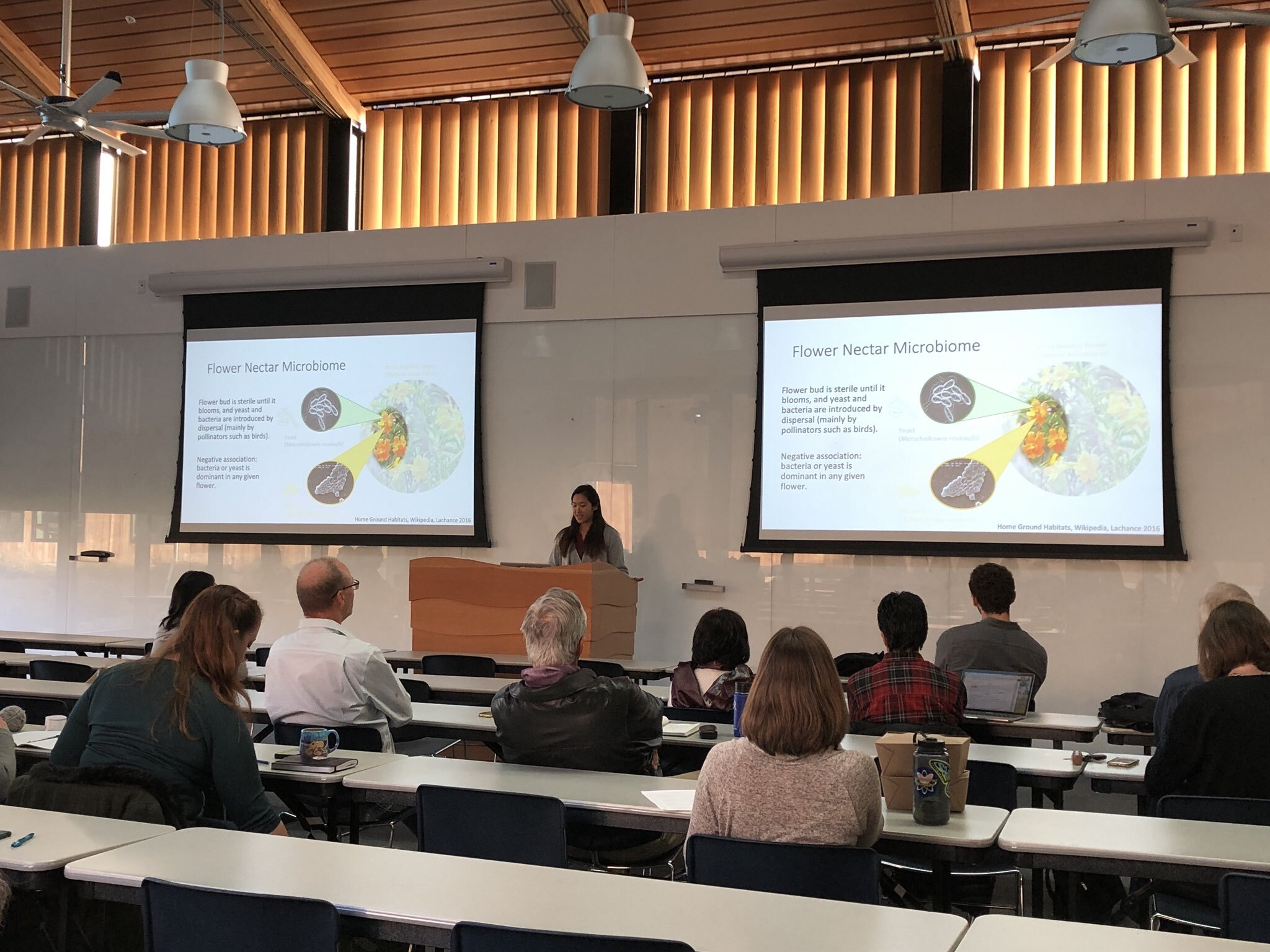Research Team
Summer 2025 research team, from left to right: Marissa Estrada, Angely Vargas, Alex Mondragon, Carlos Leiva, Daniel Pena {back}, Callie Chappell, Lia Kim {front}
Team work makes the dream work! My vibrant undergraduate research team is passionate about making social change through scientific research, art, and activism. I believe that the most important aspect of my career as a scientist is to train the next generation of leaders, educators, and organizers. As such, all team members are involved in every aspect of the scientific process: experimental design, lab work, computational analysis, and presentation of the results. After getting comfortable in the lab, I encourage every undergraduate to lead or co-lead their own research project. I also include opportunities to present their research through posters and talks at conferences. Many lab members are also involved in community-centered activities that integrate science and society.
You can read about our sister project, Biology for Everyone (BIO4E) here: https://bio4e.stanford.edu/team
Current Team Members
past team members
Not pictured: Marziiah Hossine (CSU Northridge)
Team values
As a team and as individuals, we will act according to these principles by:
Allowing for personal growth
Recognizing that we are all human and come from different backgrounds
Develop a growth mindset
Showing our authentic selves
Being accepting of our mistakes and normalizing them as opportunities to learn
Making space for self-care
As individuals, we will hold ourselves accountable by:
Setting out personal goals but always thinking about how we’re part of a team
Living in sincerity and trusting in one’s own self
Create a ‘Could do list’ of things to accomplish for the week, reassess throughout week
Create a culture of responsibility to give and receive feedback
As a team, we will hold ourselves accountable by:
Make a commitment to mutual respect
Having a positive mindset, coming to meetings and work ready to learn
Continuing to be vulnerable and having the courage to speak out in a respectful manner when we feel we need to
Being supportive to each other & staying in touch
Be intentional about creating structures that maintain accountability
As a team, our core values are:
Foster a culture of inclusivity
Promote equity to ensure access to opportunities
Create a non-judgmental, supportive learning environment
Take space, make space
Compassion and kindness
Courage and determination, honesty
As a team, we want to accomplish:
Creating an inclusive community
Increased equity in STEM for underrepresented communities
Improving how we communicate with each other
Creating a collaborative and shared-learning environment
Connect the public with the science community
Conduct ourselves with integrity to be a positive impact in communities (including outside work)
Sharing ideas openly & willingly, helping our team when needed
Contribute knowledge to body of research knowledge
This statement was written collaboratively by Jonathan Barros, Briana Martin-Villa, Lexi Golden, Sawye Raygani, Jonathan Hernandez, and Callie Chappell
Undergraduate team accomplishments
Poster presentations:
K. Eritano, V. Hsu, et al., Priority effects with nectar bacteria, B-SURP Summer Symposium (2018)
C. Kieschnick, et al., Eco-evolutionary dynamics in nectar-inhabiting microbes, B-SURP Summer Symposium (2019)
L. Golden, et al., Nectar yeast evolve to resist priority effects, B-SURP Summer Symposium (2020)
B. Martin-Villa, J. Barros, et al., Simulating the effects of evolution on nectar microbe metacommunities, Virtual REU Symposium (2020)
F. Binta Barrie, et al., Nectar Analysis on Monkey Flower Plant, B-SURP Summer Symposium (2022)
Y. Calderón, et al, Bacterial Abundance as a Proxy of Nectar pH, B-SURP Summer Symposium (2022)
M. Estrada, et al. The Persistence and Impact of Genetically Engineered Microbes (GEMs) for Environmental Release on Agricultural Soil Microbiomes, Stanford Summer Scholars Program Poster Session (2025)
L. Kim, et al., Scientific Research as Collectivist Joy: Reflections of a High School Teacher in a Biology Lab, B-SURP/Bio-RETS Symposium (2025)
A. Vargas, Assessing the persistence and ecological effects of an engineered autotroph on an agricultural soil microbiome, Stanford Synthetic Biology Expo (2025)
M. Estrada, et al. The Persistence and Impact of Genetically Engineered Microbes (GEMs) for Environmental Release on Agricultural Soil Microbiomes, Annual Biomedical Research Conference for Minoritized Scientists (2025)
A. Vargas, Assessing the persistence and ecological effects of an engineered autotroph on an agricultural soil microbiome, Annual Biomedical Research Conference for Minoritized Scientists (2025) *Won presentation award in Cell Biology
Talks:
B. Martin-Villa, J. Barros, et al., Simulating the effects of evolution on nectar microbe metacommunities, Virtual REU Symposium (2020)
L. Golden, et al., Nectar microbes: Genetic variation and its consequences on priority effects, Virtual REU Symposium (2020)
M. Hossine, D. Ortiz, et al., Uncovering the mechanisms of priority effects in nectar microbes: a multi-omics approach, Stanford Summer Research Symposium (2021)
C.O. Takara, C.R. Chappell, J. Hernandez, R.C. Perez, 2021 April. BioJam camp for teen engagement in biomaking: a pilot co-design case (talk). American Educational Research Association Virtual Annual Meeting.
C.R. Chappell, A. Quiroz, K. Cordero, A. Millard-Bruzos, D. Kong, D. Endy, 2024 May, Growing a future of, by, and for the people: Envisioning an American LABrary System, Center for International Security and Cooperation (CISAC), (2024)
Papers:
C.R. Chappell, P. C. Goddard, L-A. Golden, J. Hernandez, D. Ortiz Chavez, M. Hossine, S. Herrera Paredes, E. VanValkenburg, L.A. Nell, T. Fukami, M.K. Dhami, M. K. Transcriptional responses to priority effects in nectar yeast. Molecular Ecology, e17553, (2024).
C. R. Chappell, M.K. Dhami, M.C. Bitter, L.C. Czech, S.H. Parades, F.B. Barrie, Y. Calderón, K. Eritano, L-A. Golden, D. Hekmat-Scafe, V. Hsu, C. Kieschnick, S. Malladi, N. Rush, T. Fukami, Wide-ranging consequences of priority effects governed by an overarching factor. eLife 11, e79647 (2022).
C.R. Chappell, A. Quiroz, K. Cordero, K., A. Millard-Bruzos, A. Agris, E. Cervantes, D. Kong, D. Endy, LABraries and LABrarians: a proposal for a National LABrary System. Center for International Security and Cooperation (CISAC), Freeman Spogli Institute for International Studies, Stanford University (October 2024). doi: 10.25740/ks530dc5511
We have fun!
In 2024, summer undergraduates made this cute Phineas and Ferb-themed video (video directing credit: Esteban Cervantes)
Our group also does fun stuff (I promise)! From screen printing swag, picnics and dinners together, field trips, and more, we try to stay connected with each other and our broader communities.
In line with our team values, we also often pursue outreach activities that ensure that our work has an impact outside the lab. These activities have included workshops for high school students, science communication videos, art projects, and many other things!
In 2020, we wrote a guide about mentorship together which was published on the popular ecology blog, Dynamic Ecology.


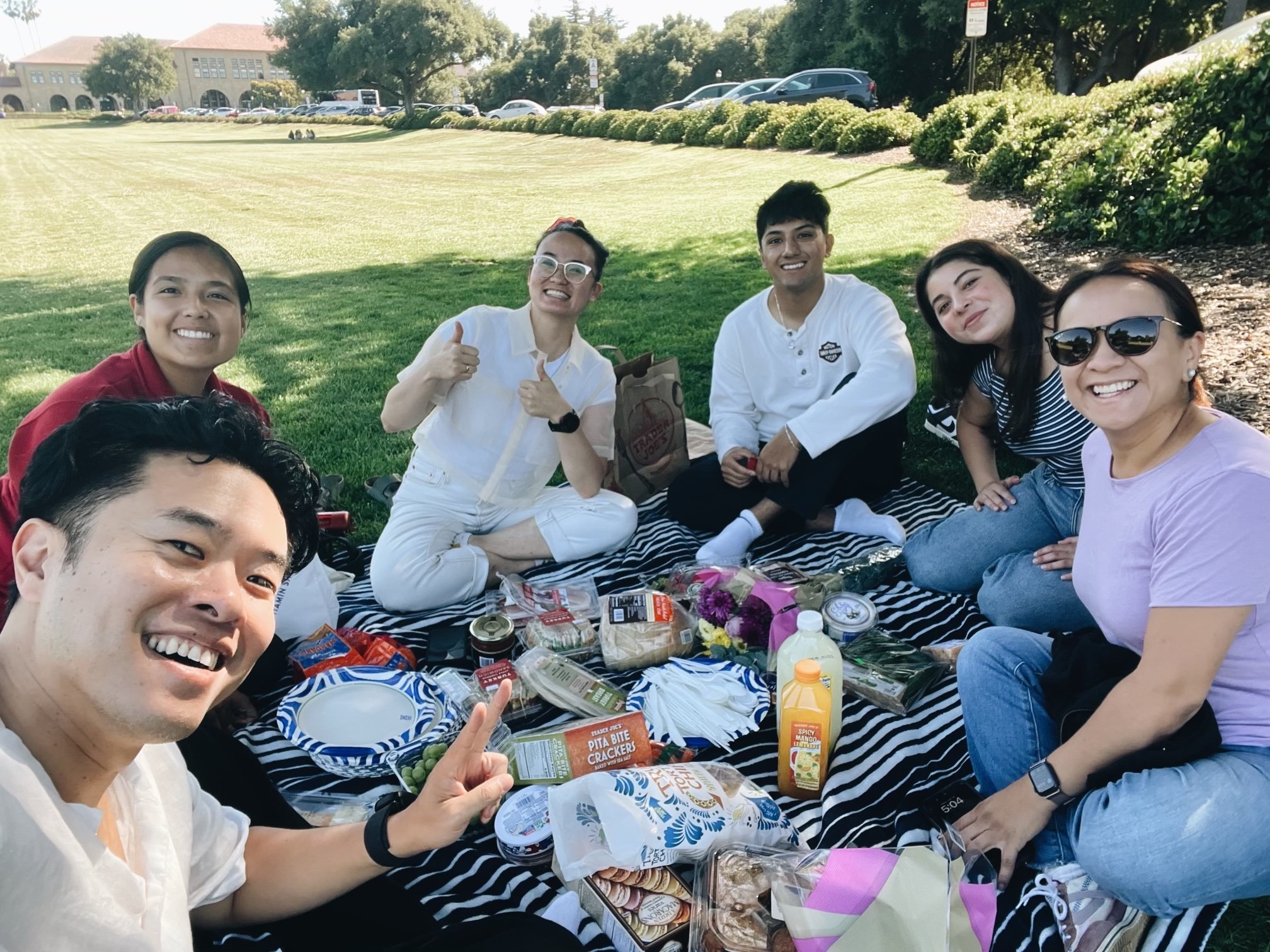
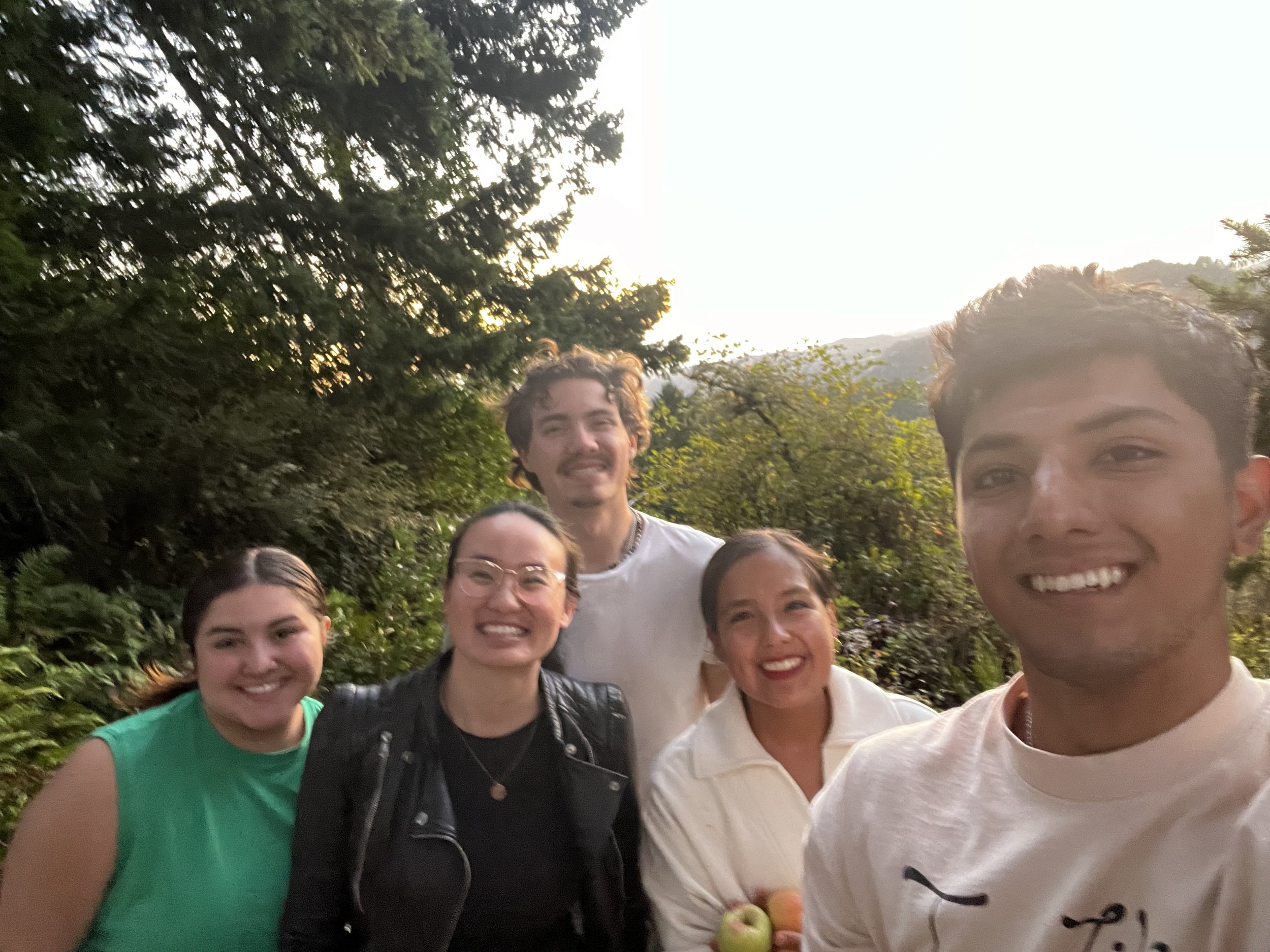



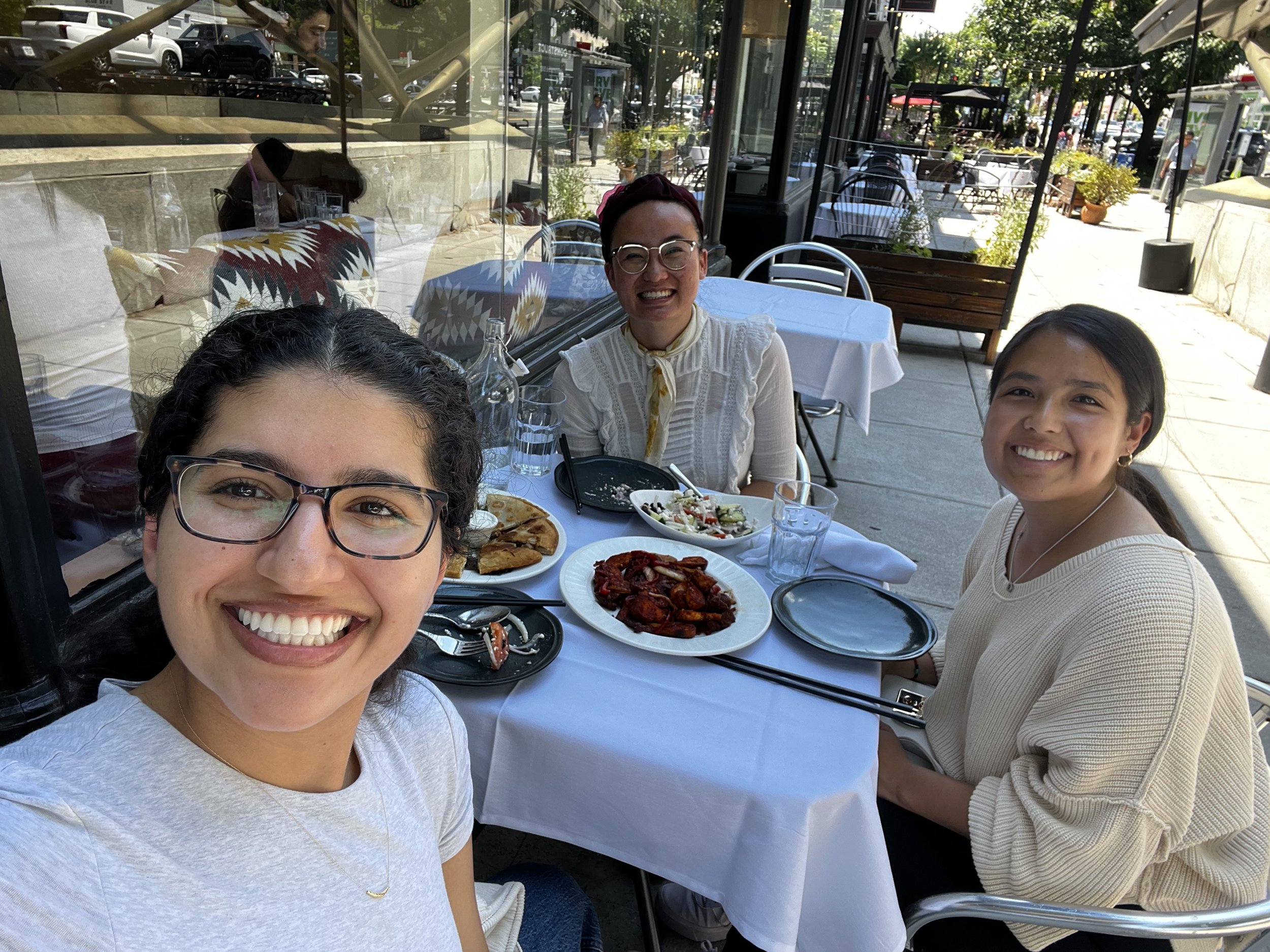
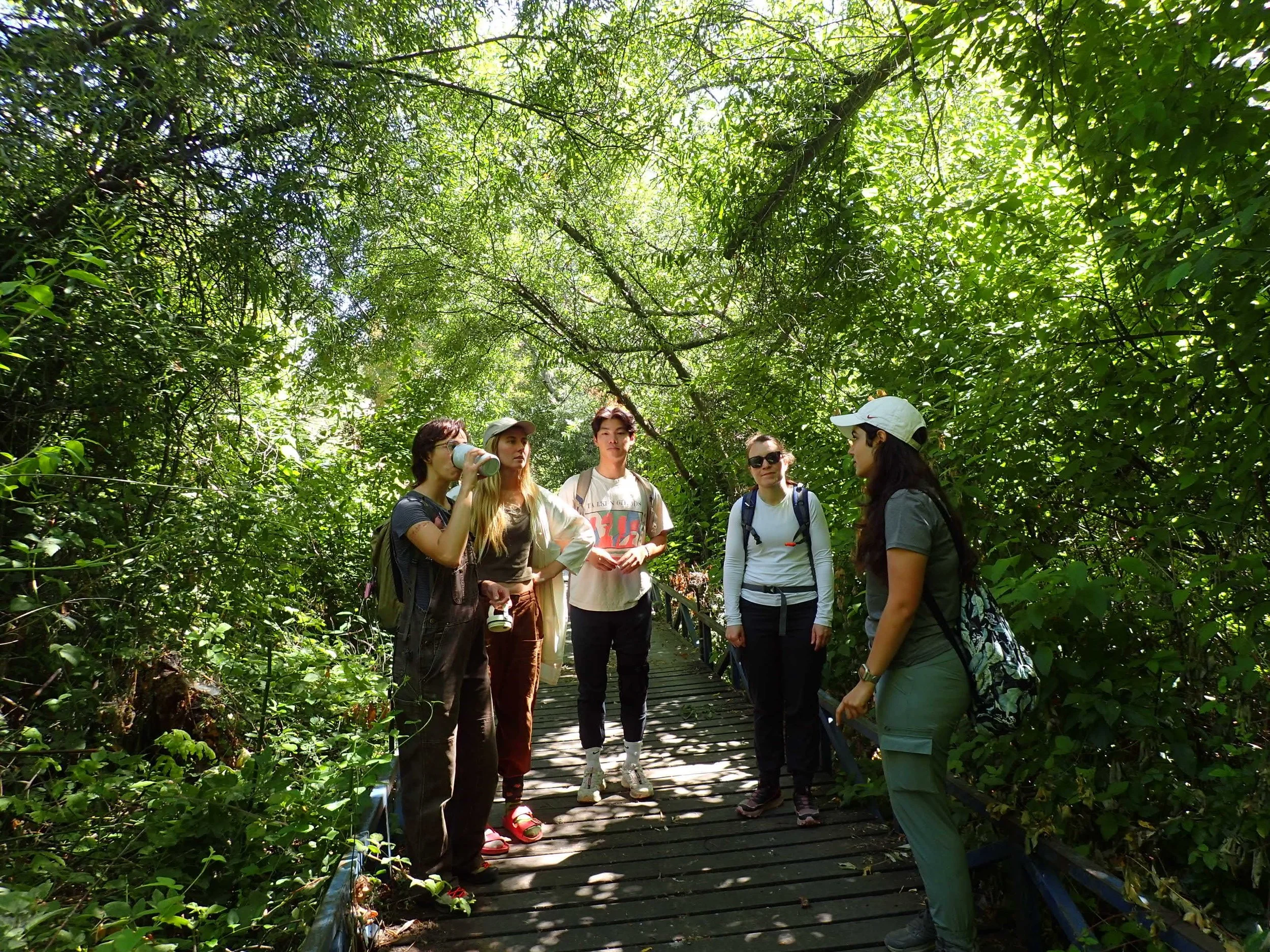
Join us!
If you are interested in joining us, please send me an email at calliech{at}stanford{dot}edu. Please include a few sentences about yourself and why you are interested in joining the team. It doesn't have to be overly formal, something like this would be great:
Hi Callie,
My name is _____. I am a "X" year student at [insert school here]. I am interested in joining your research team because….
Some ideas might include:
I haven't have the opportunity to do research before and I would love to learn about it
I am interested in learning more about ecology and evolution but don't know where to start
I heard that I can learn a lot about research from working with you, but would like to talk to you to learn if I would be a good fit.
I am able to join your team though _____ (see notes below)______ and would be interested in starting ___ {insert date}___.
Please let me know if this would be possible!
Best,
[Your name]
If I receive an email like this from you, I'll write back as soon as I can.
Some important notes:
If you are at Stanford, I only accept students who are (1) Federal Work Study-eligible, (2) take course credit, (3) pursuing an honors thesis, or (3) are part of a summer program such as B-SURP or BIO-X. I do not accept volunteers. If you are interested in joining the lab during the regular academic year, you need to be coming through options 1-3. If you are interested in joining the lab during the summer, I would encourage you to be paid through (1) Summer Federal Work-Study or (2) a summer research program.
You can find whether you are FWS-eligible by looking in the "View my Financial Aid” tab in AXESS.
If you are not at Stanford, you can work in the lab through a Stanford summer research program such as the SSRP-Amgen Scholars Program through the Community College Outreach Program (CCOP), or others. If you have an opportunity in mind or want to brainstorm ideas with me, please feel free to email me.


